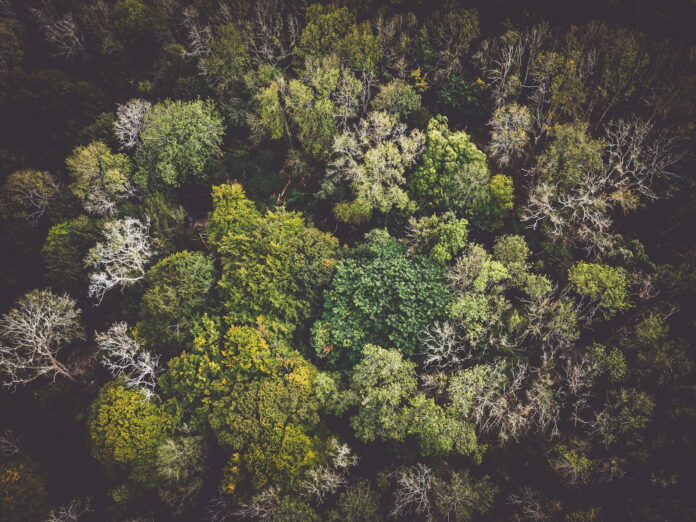In recent times, there has been a growing awareness of the environmental impacts of traditional funeral practices. As society becomes more ecologically conscious, many are seeking alternatives that are kinder to the planet. Enter green burials, an age-old practice revitalized to meet modern sustainability goals. Green burials represent a method of laying loved ones to rest that minimizes environmental damage and conserves natural resources.
Understanding Green Burials
Green burials, also known as natural burials, are designed to allow the body to decompose naturally and return to the earth without the interference of non-biodegradable materials or toxic chemicals. Unlike conventional burials, which often involve embalming fluids, metal caskets, and concrete vaults, green burials utilize biodegradable caskets or shrouds and avoid the use of vaults. This method is more aligned with nature’s cycle of life and death, as it promotes the integration of the body’s organic materials back into the soil.
The concept is not new; it harks back to ancient practices where the deceased were buried in a simple, unadorned manner. However, the green burial movement has gained momentum in recent decades as an alternative to the resource-intensive and environmentally disruptive practices of modern funerary customs. Green burial sites often double as protected green spaces, preserving land and creating habitats for wildlife. By choosing a green burial, individuals take a personal step towards reducing their carbon footprint, even in death.
Understanding green burials also involves recognizing the legal and logistical considerations that may vary by region. Regulations for green burials can differ, and it is important for individuals to research and plan accordingly. Funeral directors who are knowledgeable about green practices can provide invaluable guidance to those wishing to pursue this option, ensuring that the process respects both environmental standards and the wishes of the deceased and their loved ones.
Benefits of Eco-Friendly Funerals
The benefits of eco-friendly funerals extend beyond just the environmental. They offer a sustainable alternative that conserves natural resources and reduces the carbon footprint of end-of-life services. By forgoing the use of toxic embalming chemicals, which can leach into the soil and groundwater, green burials prevent potential contamination of the ecosystem. The use of biodegradable materials ensures that the environmental impact is minimized, as these materials break down naturally without releasing harmful substances.
Furthermore, green burials can have a positive psychological impact on the bereaved. The simplicity and natural beauty of a green burial site can provide a sense of peace and comfort, offering a more personal and meaningful experience. These natural settings can serve as living memorials, where wildlife flourishes and loved ones can visit a space that thrives with life, rather than a traditional cemetery that may evoke a sense of finality and detachment from nature.
Economically, eco-friendly funerals can also be more cost-effective than traditional ones. The costs associated with caskets, embalming, and burial vaults are often significant. Choosing a green burial can reduce financial strain on families by eliminating many of these expenses, aligning end-of-life choices with both ecological values and economic practicality.
Implementing Sustainable Practices
Implementing sustainable practices in the funeral industry requires a multifaceted approach. Funeral directors and industry professionals must become educated about green alternatives and be willing to offer these services to meet the growing demand. This includes understanding the materials and processes involved in green burials, as well as staying informed about evolving environmental regulations and standards.
Cemeteries and burial grounds can also play a crucial role in this transition by allocating space for natural burials and adopting land management practices that encourage ecological health. This might include planting native vegetation, avoiding pesticides, and managing the land in a way that promotes biodiversity. By transforming burial sites into conservation areas, the funeral industry can contribute to the preservation of natural landscapes.
Lastly, public awareness and acceptance are key to the widespread adoption of sustainable funeral practices. Education campaigns that inform the public about the environmental impacts of traditional burials, and the benefits of green alternatives, can help shift perceptions and encourage more eco-conscious decisions. As society continues to grapple with environmental challenges, sustainable practices in all aspects of life, including death, become increasingly important.
Green burials present an opportunity to make a final statement of environmental responsibility and care for the planet. By understanding the principles behind green burials, appreciating their multifaceted benefits, and exploring ways to implement sustainable practices, the funeral industry can support individuals in making choices that align with their ecological values. As we continue to seek harmony with the environment, green burials offer a path to ensure that our respect for the Earth endures, even as we return to it. The adoption of eco-friendly funerals is more than a trend; it’s a reflection of a growing consciousness that recognizes the importance of sustainability in every phase of life, including its conclusion.
